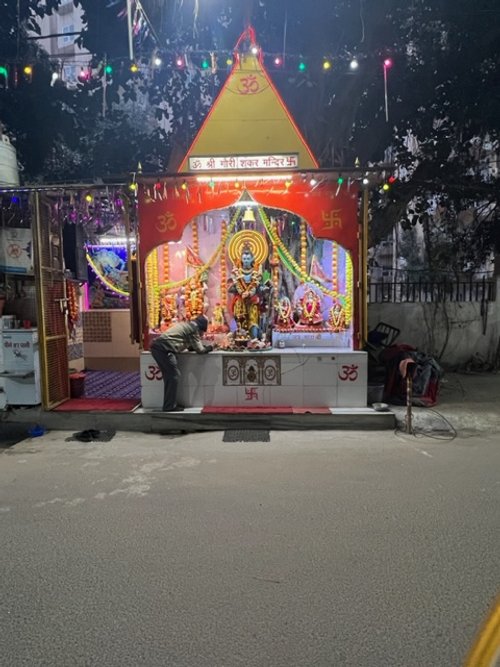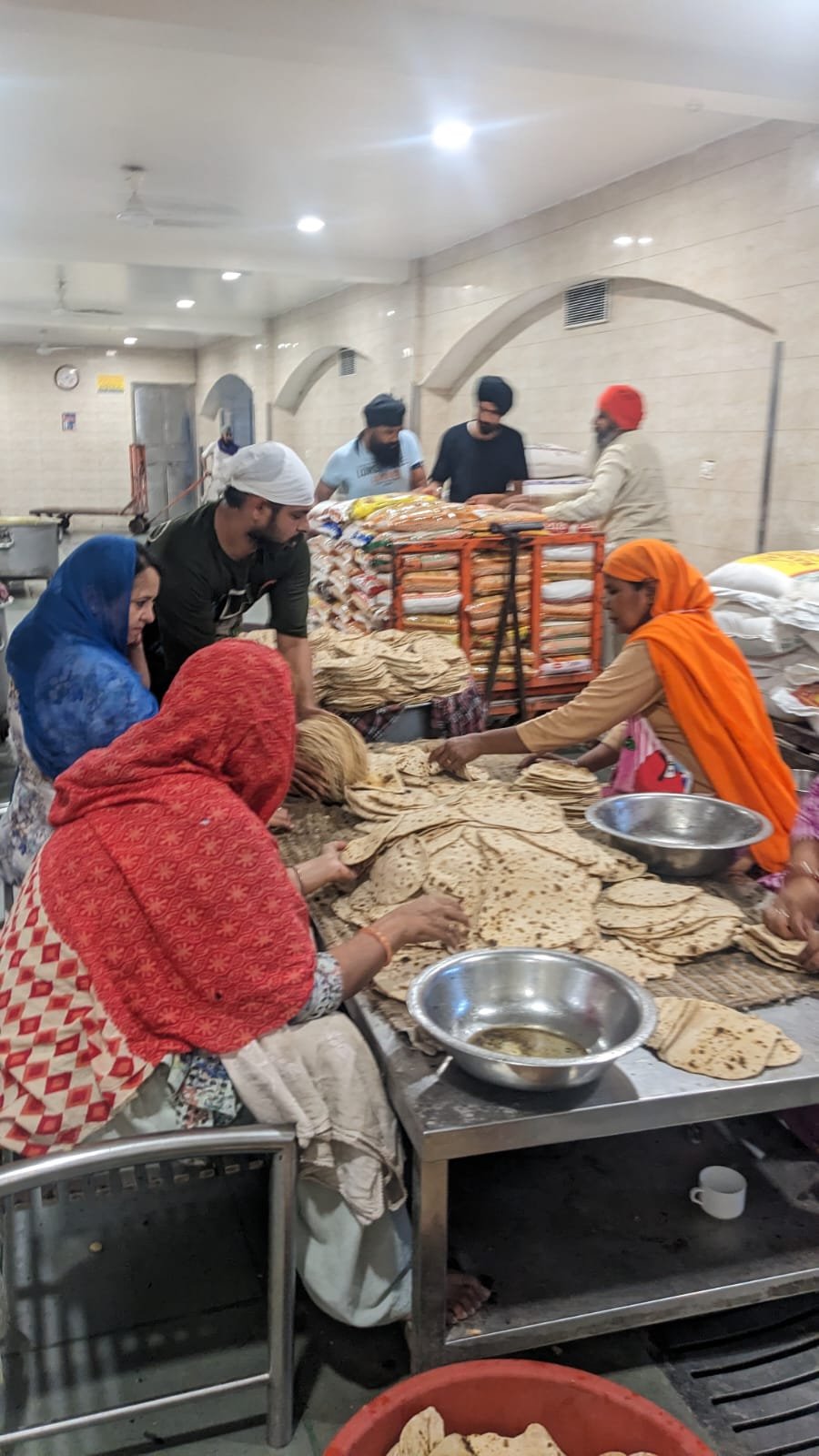Langar
Henry Morish getting me some langar during the Hindu festival of Ravnatri. I met Henry from a former Fulbrighter who had employed him as a full-time driver. Henry, fluent in English, unfailingly polite and a great driver, makes his living driving for private clients (like me and other foreigners) as well as for Uber. I got to know him pretty well as several days a week, he would pick me up in the morning, take me to yoga in Jangpura, and then drop me at NLU Delhi in Dwarka.
In Delhi, I spent a lot of time looking out of a car window. With almost 33 million people spread over a sprawling 573 square miles, I drank in the sights of so many different Delhi neighborhoods and of course, Delhi traffic. Life in Delhi constantly served up feasts —from the motorcycles, bicycles and the auto-rickshaws to the little neighborhood temples and the vegetable vendors.
Slowly, after several weeks, I began to distinguish specific sights in the wonderful colorful and vibrant blur. Occassionally, I saw large tables on the side of the road, surrounded by crowds of people, that seemed to be serving food. Oh, I thought, kind of like a street festival?
Not exactly, Henry (my sometimes-driver) explained. This charitable giving away of food — often in celebration of a holiday — is called langar. Then I noticed that every Thursday outside of the Sai Baba temple near my apartment, there was langar.
The tradition of langar — serving meals free of charge regardless of religion, caste, sex, socio-economic status, etc. — exists in the Sikh religion, and sure enough, when I visited the amazing Sikh temple or gurudwara in Delhi, the Gurudwara Bangla Sahib, I witnessed the preparation of the huge daily langar.
I had asked Henry to get me some langar when we passed a large table on the last day of Navratri because I wasn’t really certain I was allowed to have it (and because I was a bit intimidated by the crowded line). But when I went back myself to get seconds, (the puri bread and vegetarian dahl were delicious!) no one asked me for any religious credentials. The servers and cooks and people standing in the line went out of their way to show me what to do and to help me balance my plate.
This got me to thinking about how the broader idea of langar — helping others with no expectation of return — could be found in so many instances of my life in Delhi.
There was the time I was trying to explain to a worker at the NLU Delhi canteen that I owed money for a meal I had eaten earlier in the morning (I had had to rush off before paying — and he wanted an explanation in Hindi but my very limited vocabulary and more limited verb conjugation wasn’t doing the trick) — some visiting parents standing next to me translated for me until I was able to resolve my debt. There was the time when I was confidently taking the wonderful Delhi metro home from Noida, an outlying suburb, and was taken by surprise when the tracks ended — but a young school boy accompanied me, helping me with my luggage, and showed me where to get the connecting autorickshaw to the next set of tracks. There was the time when I was struggling to buy vegetables from the vendor outside my apartment — again, handicapped by the lack of Hindi and the lack of understanding of metric weight — when a passing neighbor stood next to me and translated until my shopping was complete.
Life in Delhi can work fine with the kindness of strangers.





